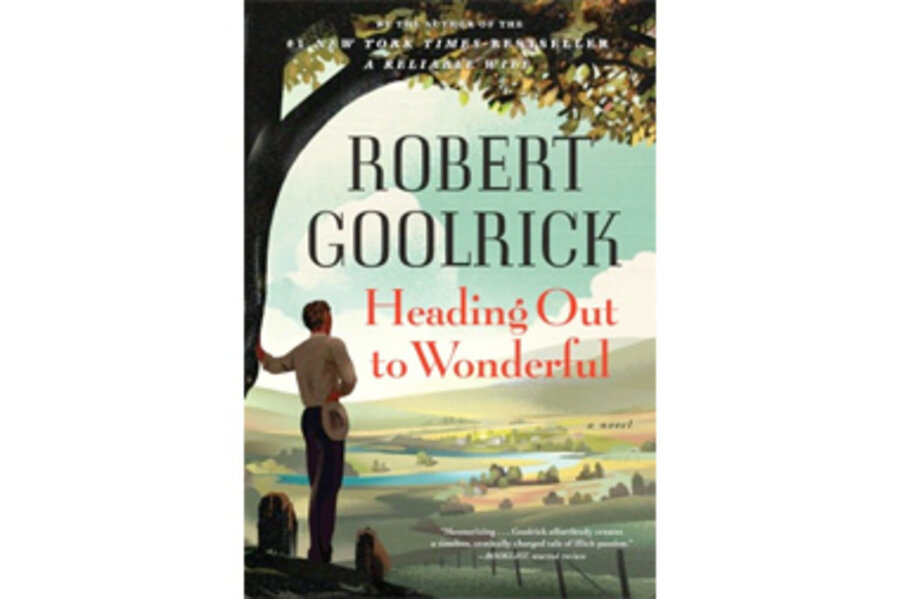Charlie Beale is another vet just returned home from the war – in Europe this time, in Robert Goolrick's follow-up to his critically acclaimed 2009 debut novel, “A Reliable Wife.”
Beale quits traveling once he hits Brownsburg, Va., in 1948, “the kind of town that existed in the years right after the war, where the terrible American wanting hadn't touched yet, where most people lived a simple life without yearning for things they couldn't have....”
Unfortunately, Charlie, who sets up as a butcher's assistant, is one of those people who yearn. In this case, what he yearns for is Sylvan Glass, the beautiful teenage bride of the fattest, meanest, richest man in town, who purchased her from her family like he would a head of cattle. Sylvan, for her part, dreams of being an actress, wanting a movie camera to make her real.
“Heading Out to Wonderful” reads like an Appalachian ballad, and its doomed summer romance is a far cry from the frozen, twisted icicle that was “A Reliable Wife,” where everyone was double-crossing everyone else. Unlike Catherine Land and Ralph Truitt, Sylvan and Charlie literally cannot keep a secret to save their lives.
The lovers end up touching the lives of everyone in town, especially five-year-old Sam Haislett, our now much-older narrator, who Charlie unconscionably brings with him on his trysts.
Goolrick is an atmospheric writer, and he builds the tension well. But there are a few glaring holes in the plot: 1) Charlie has a suitcase full of money, whose origin is never explained. A reader assumes it was acquired less than legally, but Charlie doesn't come off as bright enough to be able to pull off a con or successfully double-cross anybody smarter than a beagle. 2) Sylvan feels a powerful amount of loyalty to the parents who sold her and want nothing more to do with her. 3) A reader knows from almost Page 1 that something bad is going to happen, but when it comes, it is so far out of left field, even the narrator says he can't explain it.
Up until the misfire of a climax, “Heading Out to Wonderful,” looks like it could be heading somewhere special. Goolrick's most interesting character isn't either of his leads: It's Claudie Wiley, a genius of a seamstress who creates a wardrobe for Sylvan modeled after clothes she sees in films. But fans of “A Reliable Wife” can be forgiven for hoping that Goolrick is in a more wintry mood for his next novel.







